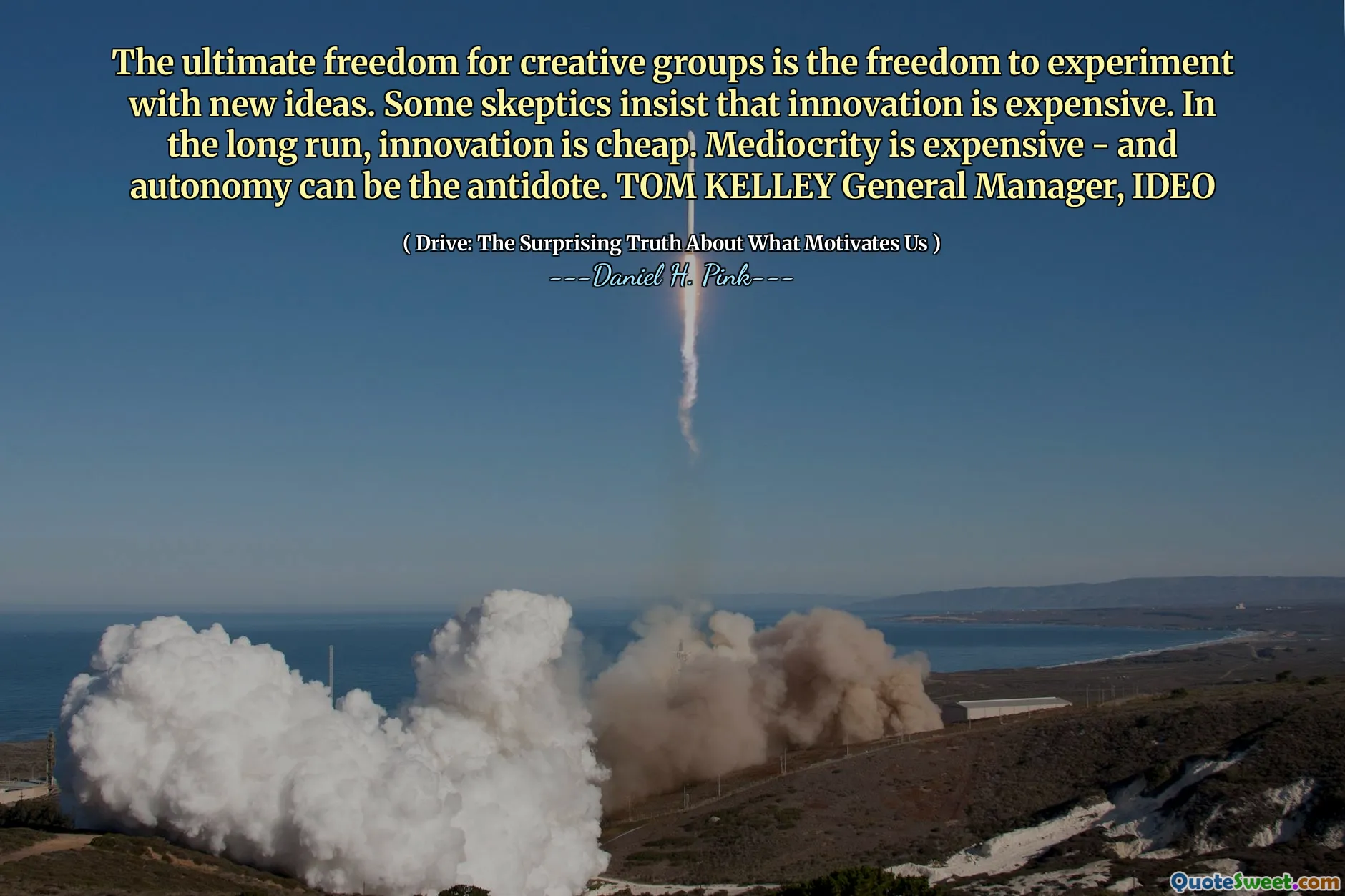
The ultimate freedom for creative groups is the freedom to experiment with new ideas. Some skeptics insist that innovation is expensive. In the long run, innovation is cheap. Mediocrity is expensive - and autonomy can be the antidote. TOM KELLEY General Manager, IDEO
This quote resonates deeply with the central themes of Daniel H. Pink's book Drive: The Surprising Truth About What Motivates Us, where intrinsic motivation — including autonomy, mastery, and purpose — are emphasized as the key drivers of peak performance and creativity. Tom Kelley highlights autonomy as a catalyst for innovation within creative groups, encouraging experimentation as a form of freedom. This aligns perfectly with Pink's argument that giving people ownership over their work ignites passion and leads to better results than traditional extrinsic motivators.
Skeptics often view innovation as a costly endeavor, focusing on immediate expenses and uncertainty. However, the quote insightfully flips this perspective, suggesting that the long-term cost of stifling innovation is far greater as it breeds mediocrity, which is inherently expensive due to lost opportunities, system inefficiencies, and diminishing returns on uncreative solutions. By framing autonomy as the antidote, the quote implicitly advocates for environments where teams can iterate freely and learn from failures, fostering a culture where innovation flourishes and the costs normalize over time.
In practical terms, organizations seeking to thrive in competitive, rapidly changing markets would do well to heed this wisdom. Investing in autonomy and encouraging diverse ideas should be seen not as a risk or expense but as an enabling investment that propels sustained innovation and counters the hidden costs of mediocrity. From a motivational perspective, this perspective reaffirms how intrinsic motivation is a potentially more powerful force in creative work than external rewards or rigid control systems.
